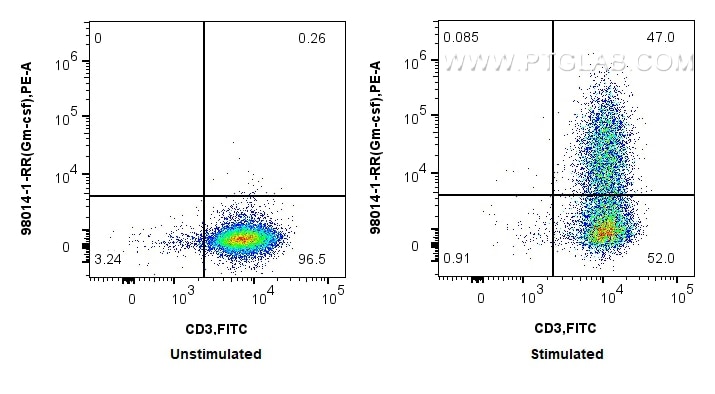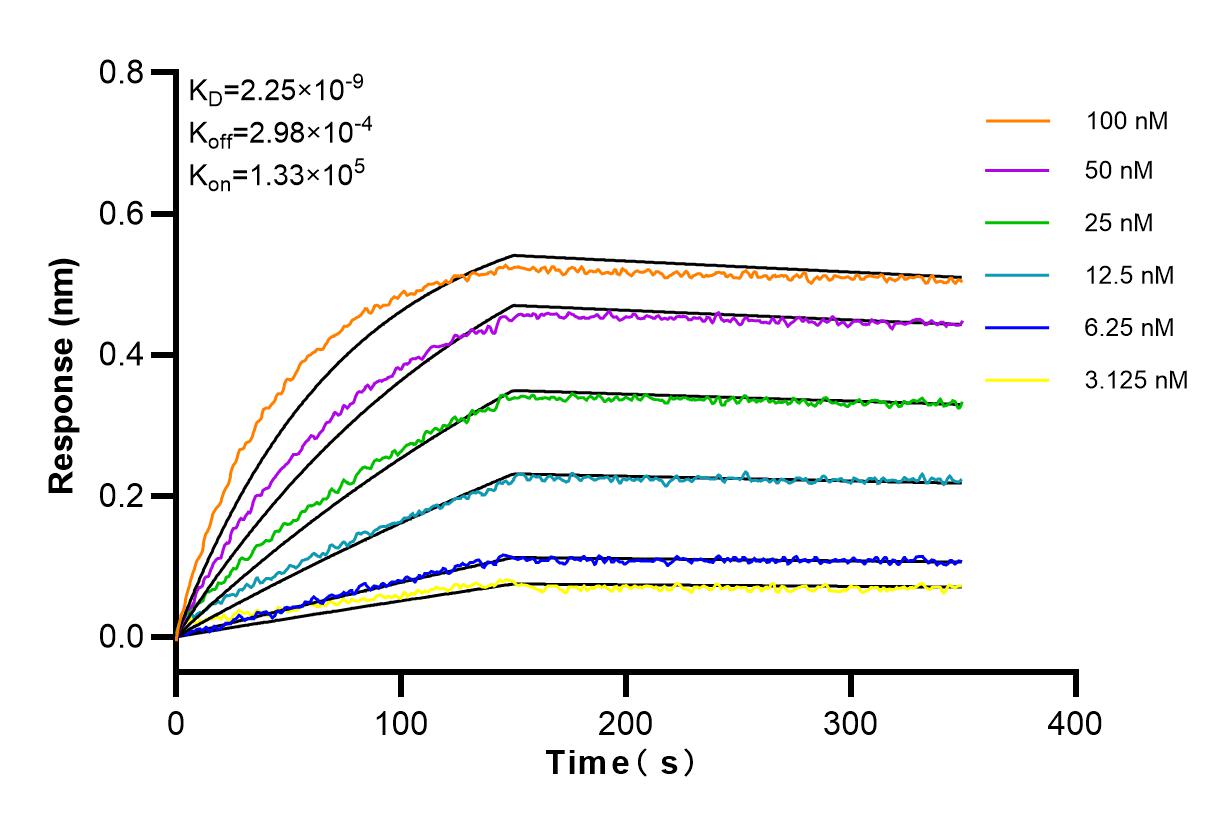Tested Applications
| Positive FC (Intra) detected in | PMA and ionomycin stimulated C57BL/6 CD3 T cells |
Recommended dilution
| Application | Dilution |
|---|---|
| This reagent has been tested for flow cytometric analysis. It is recommended that this reagent should be titrated in each testing system to obtain optimal results. | |
| Sample-dependent, Check data in validation data gallery. | |
Product Information
98014-1-RR targets GM-CSF in FC (Intra) applications and shows reactivity with mouse samples.
| Tested Reactivity | mouse |
| Host / Isotype | Rabbit / IgG |
| Class | Recombinant |
| Type | Antibody |
| Immunogen | Recombinant protein Predict reactive species |
| Full Name | colony stimulating factor 2 (granulocyte-macrophage) |
| GenBank Accession Number | NM-009969 |
| Gene Symbol | GM-CSF |
| Gene ID (NCBI) | 12981 |
| RRID | AB_3672157 |
| Conjugate | Unconjugated |
| Form | Liquid |
| Purification Method | Protein A purfication |
| UNIPROT ID | P01587 |
| Storage Buffer | PBS with 0.09% sodium azide , pH 7.3 |
| Storage Conditions | Store at 2-8°C. Stable for one year after shipment. |
Background Information
Gm-csf, also known as Csf2, is a monomeric glycoprotein secreted by macrophages, T cells, mast cells, NK cells, endothelial cells and fibroblasts that functions as a cytokine. Gm-csf was first characterized as a hematopoietic growth factor that stimulates the proliferation of myeloid cells from bone-marrow progenitors. Gm-csf is now recognized as an important activating and differentiation factor for immune cells, and is essential for a wide range of biological processes in both innate and adaptive immunity. Gm-csf has been shown to protect against pulmonary infection and intestinal inflammation, and it is necessary for normal pulmonary and colon homeostasis.
Protocols
| Product Specific Protocols | |
|---|---|
| FC protocol for GM-CSF antibody 98014-1-RR | Download protocol |
| Standard Protocols | |
|---|---|
| Click here to view our Standard Protocols |





